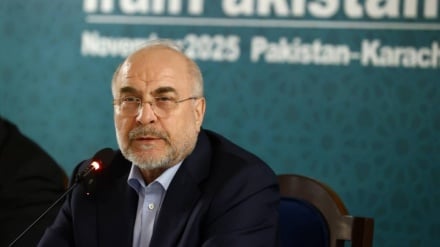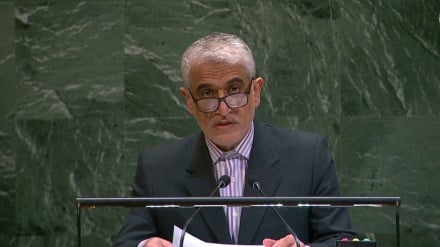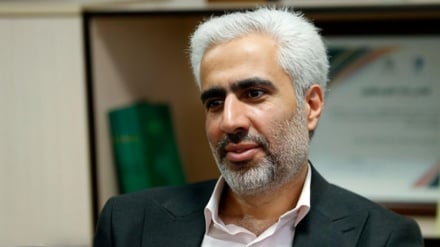In Yemen, a humanitarian pause is urgently needed
As war continues to rage uninterrupted in Yemen, a humanitarian pause is badly needed as the country spirals down to chaos, leaving the majority of the population in urgent need of medical care. Restrictions on access to medical supplies and care are key impediments in improving the situation of people in need.
A five day humanitarian pause would allow supplies and care to reach those people and relieve their dire health situation. Dr. César Chelala, an international public health consultant and a winner of several journalism awards, has published an article with the Common Dreams, on the urgent need to find, in not permanent, a short remedy, for the Yemeni people who have been suffering from unprovoked Saudi onslaught on the country. Do stay with us with Dr. César Chelala’s article plus some ground realities.
As the Saudi’s indiscriminate air attacks on Yemeni people goes on, attacks on health facilities continue. Last October, the World Health Organization, WHO, condemned the bombing of a Medécins Sans Frontières’, MSF, supported hospital in Saada Province in northern Yemen. MSF believes that as a consequence 200.000 people were left without medical care. That attack, that violated International Humanitarian Law, was the second one on an MSF-run facility in a month.
Since the beginning of Saudi Arabia’s attacks on Yemen, conducted with U.S. support, more than 8,300 have lost their lives, more than half of them civilians -including hundreds of women and children- and 28.753 injuries have been reported. Several health workers have also been martyred and 47 health facilities in 11 governorates have been damaged or closed as a result of the continuous violence.
Health care services in all public hospitals have been reduced, especially operating theaters and intensive care units. At the same time, disrupted immunization activities have increased the risks for measles and poliomyelitis, even though Yemen is presently free of polio. The breakdown of the water supply and sanitation systems has facilitated the spread of diseases such as malaria and dengue fever, as well acute diarrheal diseases, particularly affecting children. Also, because of limited communication possibilities, the early warning alert system for diseases has been seriously affected.
The country has one of the highest rates of chronic malnutrition in the world. According to UNICEF, 1.3 million Yemeni children younger than five years now suffer from acute malnutrition, compared to 850.000 before the war started. Some 320.000 are severely malnourished, twice the amount before the crisis. The little cash people have is to pay for food and gas –at greatly increased prices- leaving no money to afford health care.
The Lancet reports that approximately a quarter of the country’s health care facilities are no longer functional. To make matters worse, as Ronald Kremer, from MSF says, "People do not dare to go to hospitals because they are afraid that they are targeted and, even if they want to go they may not have the means –even where public transport does exist, it is very expensive because of the fuel problems."
Fuel problems have increased the problems in obtaining clean water. Lack of a proper water supply and the dire sanitation and hygiene situation has led to outbreaks of dengue and malaria. Because many Yemenis store water in open containers, that becomes an ideal breeding ground for disease-transmitting mosquitoes.
So far, there are more than 2.5 million people who have become internally displaced persons, IDPs. To compound an already difficult situation, disrupted immunization campaigns have led to increasing number of children affected with measles and rubella, particularly among IDPs living in overcrowded conditions As a result of the conflict, many hospitals, laboratories, health warehouses and administrative offices have closed. Primary care facilities have minimum access to medicines, supplies and equipment. Fuel shortage has affected the proper operations of ambulances.
In this situation, a humanitarian pause is urgently needed. A five day pause, as proposed by the World Health Organization, would allow humanitarian organizations to respond to some of the most life-threatening needs of the people, particularly women and children caught in the middle of the conflict. A MSF doctor taking care of a badly hurt child in Syria realized that the child was desperately trying to tell him something. When he asked his translator what the child was saying, the translator responded, “Don’t they realize that we are children?” A similar question could be asked in Yemen today.
As it seems, Saudi Arabia, and to a lesser extend its partners in crime, are unable to successfully interpret macro-level developments in the region and the bad news just keeps on coming.
First it was the Syrian ceasefire agreement that began just recently and turned their regime-change fantasy into a nightmare. Then it was the EU members of the parliament, MEPs, who voted overwhelmingly for European Union arms embargo against Saudi Arabia in protest against its heavy bombing campaign in Yemen. Now the United Nations Secretary General Ban Ki-moon has roundly condemned Riyadh for defying international calls to halt its airstrikes on Yemen.
Now the next best thing should be this: The United Nations should send its human rights experts to Yemen to investigate the Saudi war crimes as well as widespread human rights abuses with a view to preventing further deterioration of the situation in that war-torn country. Seeing that, the House of Saud is no longer able to justify the illegal war. Its bogus coalition has carried out a range of war crimes against the civilian population. The Arab country has been under military attacks by Riyadh since late March last year.
At least 8,300 people, including 2,236 children, have been killed so far and over 28.753 others have sustained injuries. The strikes have also taken a heavy toll on the country’s facilities and infrastructure, destroying many hospitals, schools, and factories. As a consequence, contrary to helping “democratize” the poorest country in the Middle East, the regime-change fantasy has sowed the seeds of House of Saud’s own destruction with increased global hatred, condemnation, and isolation.
The House of Saud and its allies continue to impose a complete blockade on Yemen in collaboration with US-NATO navies. The blockade is an intensification of criminal policies designed to isolate the population of Yemen, cripple its fragile economy, and provoke its people against the resistance movement of Ansarullah. There can be no dispute that collective punishment is illegal under International Humanitarian Law.
The air, sea and land blockade is but the terminal end of the Saudi-led closure policy. According to human rights groups, the blockade is condemnable, as it means the denial of a broad range of items deemed non-essential for a population largely unable to be self-sufficient in the face of the ongoing military aggression.
In any case, the UN says the House of Saud has to stop airstrikes which are compounding the humanitarian consequences of the conflict. In roundly condemning the Saudis for defying international calls to halt airstrikes, the UN chief has clearly condemned Riyadh’s invasion and occupation, human rights violations and blockage, systematic bombing of civilians and genocide, as well as war crimes and crimes committed against humanity in Yemen.
It is past time for the UN to also send its experts to Yemen to help fulfill its international obligations, and ensure accountability for human rights violations and abuses by the House of Saud and its partners in crime. The UN has a clear mandate from the civil society to force the regime changers to change their failed policy and help prevent Yemen from falling into the abyss.
Saudi Arabia has been committing war crimes against the people of Yemen since last March. The UN is therefore implicated since it is yet to force Riyadh make peace with Yemen and lead the way to peace throughout the Middle East. The international body is expected to act independently and promptly to find a remedy for the suffering Yemeni people; these people have been forgotten purposefully by the Western mass media, as if there were no such a bitter and heart-rending ground realities at all. Where are the claimants of defending the human rights? Will they come to their senses anyhow?
EA/ME


